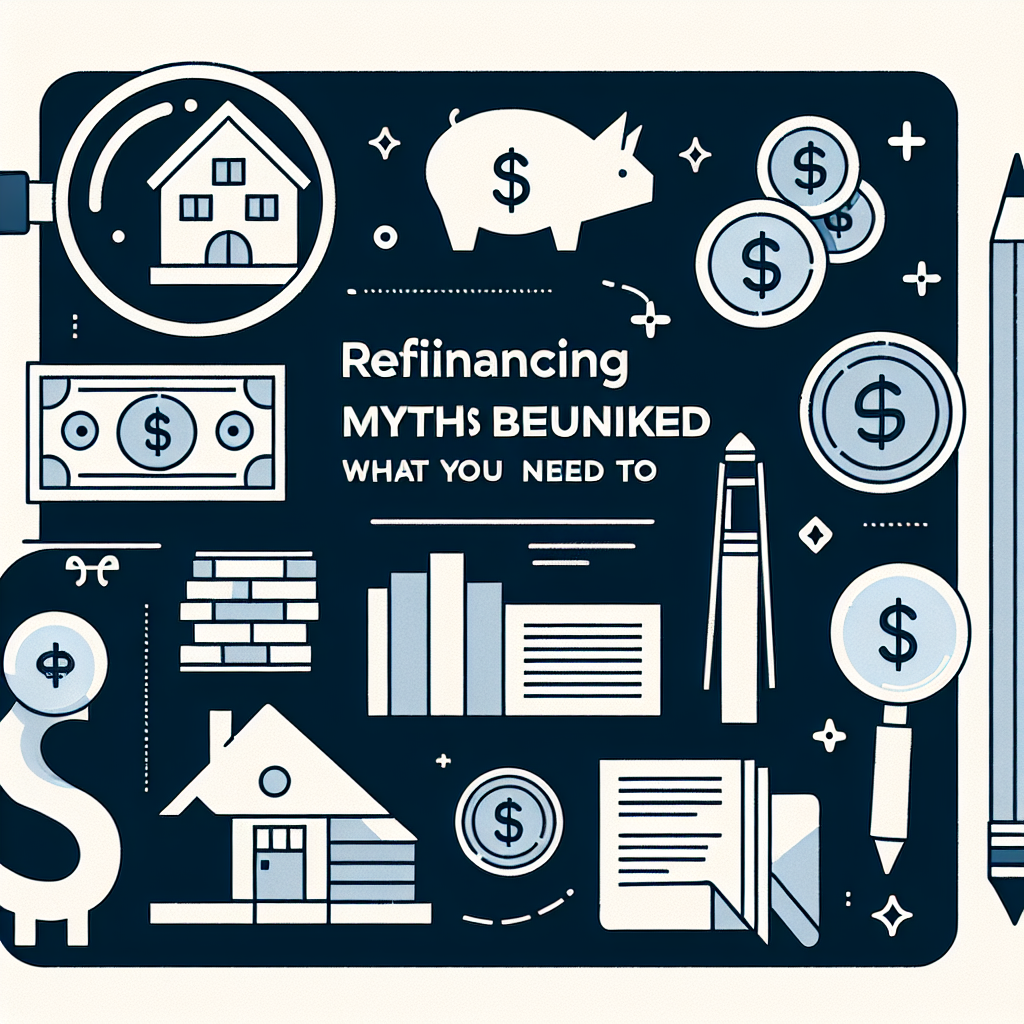Refinancing your mortgage can be a smart financial move, but there are many myths surrounding the process that can lead to confusion and hesitation. If you’re considering refinancing, it’s essential to separate fact from fiction. In this article, we will debunk common refinancing myths and provide you with valuable insights to make an informed decision.
Myth 1: Refinancing is Only for Homeowners with Bad Credit
One of the most persistent myths is that refinancing is only an option for homeowners with poor credit. While it’s true that having a higher credit score can help you secure a better interest rate, homeowners with good or excellent credit can also benefit from refinancing. Whether you want to lower your monthly payments, tap into your home’s equity, or switch from an adjustable-rate mortgage (ARM) to a fixed-rate mortgage, refinancing can be advantageous regardless of your credit standing.
Myth 2: Refinancing is Always Expensive
Many homeowners are deterred by the belief that refinancing comes with high costs that outweigh the benefits. While refinancing does involve fees such as application costs, appraisal fees, and closing costs, these expenses can often be recouped through lower monthly payments or more favorable loan terms. Moreover, some lenders offer “no-closing-cost” refinancing options, allowing you to reduce upfront expenses. It’s essential to shop around and compare offers to find a refinancing option that fits your budget.
Myth 3: You Can Only Refinance With Your Current Lender
Another common misconception is that you must refinance with your current mortgage lender. In reality, you’re free to shop around and compare rates from multiple lenders to find the best refinance deal. Different lenders can offer varying interest rates and terms, which could result in significant savings over time. Always get quotes from several lenders before making a decision to ensure you’re getting the best deal possible.
Myth 4: Refinancing Will Ruin Your Credit Score
Some homeowners fear that refinancing will hurt their credit score. While it’s true that applying for a new loan can result in a hard inquiry, which may temporarily lower your score, the long-term impact can be positive. By refinancing to a lower interest rate or more favorable terms, you may improve your financial situation, leading to better credit habits and a higher score over time. Just be sure to maintain timely payments on your new mortgage.
Myth 5: You Need 20% Equity to Refinance
While having 20% equity in your home is beneficial and may help you avoid private mortgage insurance (PMI), it’s not a strict requirement for refinancing. Many lenders allow homeowners to refinance with less than 20% equity, although you may be required to pay PMI, which can increase your monthly payment. Various programs, such as FHA and VA loans, offer refinancing options with lower equity requirements. Be sure to consult with your lender about your specific situation.
Myth 6: Refinancing Takes a Long Time
Some homeowners believe that refinancing is a lengthy and complicated process. While it can take several weeks to complete, the timeline largely depends on the lender, your preparedness, and the complexity of your application. By being organized and providing all necessary documentation upfront, you can expedite the process. Many lenders also offer digital applications and streamlined procedures to make refinancing more efficient.
Myth 7: All Refinancing Options Are the Same
Not every refinancing option is created equal. Homeowners often overlook the variety of refinancing products available, such as rate-and-term refinancing, cash-out refinancing, and streamline refinancing. Each option serves different financial needs and goals, so it’s crucial to understand the differences before making a decision. Take the time to research and consult with a financial advisor or mortgage specialist to determine the best option for your situation.
Conclusion: Educate Yourself Before You Refinance
Refinancing can be a powerful tool to improve your financial health, but it’s essential to dispel these myths and understand the facts before proceeding. By educating yourself and asking the right questions, you can make informed choices that align with your financial goals. Remember to evaluate your options, shop around for the best rates, and consult with professionals if needed to ensure a successful refinancing experience.

